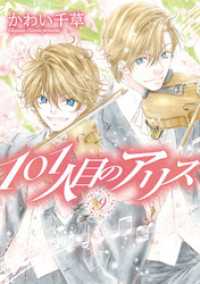- ホーム
- > 洋書
- > ドイツ書
- > Humanities, Arts & Music
- > Linguistics
- > english linguistics
Description
(Text)
This study examines different conceptions of time in Daniel Defoe's (1660-1731) novels. The temporal aspects of the novels are surveyed, taking into account the historical situation of the novel as a genre and contemporary conceptions of time. The modernisation process of the Western world serves as a wider context of the study, as present research indicates that Defoe's novels exemplify a multilayered shift from 'pre-modern' Western conceptions of time to those of the modern age. The author also explores gendered time and economic and cultural values of time in Defoe's novels. The book contributes a fresh analysis of Defoe's novels and demonstrates the crucial relation between historical-cultural conceptions of time and the historically changing genre of the novel.
(Table of content)
Contents: The History of Western Time-Thought: 'Pre-Modern' and Modern Ideas of Time - The Relation between Time and the Novel - The Reception and the Research Tradition of Defoe's Novels - Adventure-Time, Autobiographical Time and a Cyclical Idea of History - Christian Views of Time - Chronology and Calendar Time - The Functions of the Watch and Clock-Time - Gendered Time - Time as an Economic and Cultural Value.
(Author portrait)
The Author: Aino Mäkikalli studied Comparative Literature and Cultural History at the University of Turku, Finland. She is a Research Fellow in the Department of Comparative Literature at the University of Turku.








